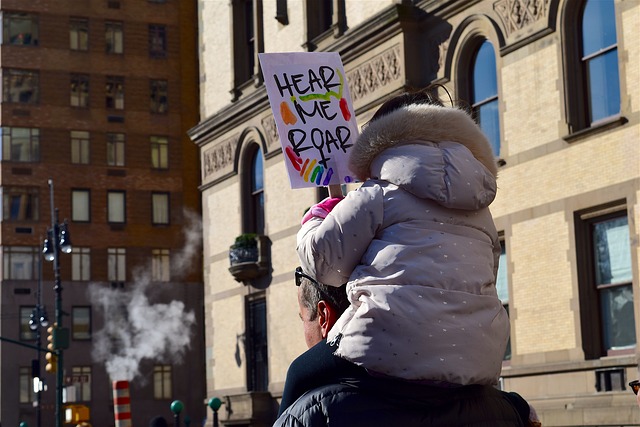Already in 2018, we have witnessed traumatic events that have galvanized a surge of activism from three sources which heretofore have been either dormant or ineffective with their voices for change:
- primarily Generation Z, led by students from the Parkland, Florida massacre who are initiating a broad movement against pro-gun politicians tied to the NRA
- noteworthy brands taking a stand against NRA positions, and
- the growing movement against sexual harassment ( e.g. #MeToo initiative).
The ultimate goal of all these forces is to influence the allegiance of the customers/voters of these brands — Congress (and Trump), the NRA, and corporations. The potential impact of these changes can be enormous.
The essence of good branding is to offer customers a relevant benefit or value that will nurture a trusting relationship. Each congressional representative is really a personal brand. The NRA is also a brand with a well defined mission and loyal supporters, plus a sizeable bankroll that enables it to keep many in Congress in their pocket. And of course, every company brand must position itself to sustain their bond with their consumers and all other stakeholders, today and for the future. Here are some insights on these movements and how they could impact our politics and society.
Millennials and Generation Z
As the first digital generation, they tend to lean left and are more socially conscious, less trusting, very entrepreneurial, more transient with no voting habits, and with different values. But their behavior can be very frustrating. Until recently, it has been “all talk, no action.” In particular, their voter turnout has been dismal, allowing older, more conservative voters to determine the outcomes on key issues, from Brexit to Trump to NRA support. In the 2014 midterm elections, for example, the turnout for 60+ aged voters was 55%, whereas only 16% of 18-29 year-olds voted.
However, the Parkland school tragedy may finally become the catalyst to turn the tide against guns and other social issues. The passion, energy, and eloquence of these Parkland students have become contagious around the country. Students like Emma Gonzalez have become household names, who now has 1.2 million Twitter followers. Unlike politicians who often waffle their answers, these students are specific, practical, and direct: “assault weapons are for offense, not defense” and “politicians are easy to buy.” Ominously for the NRA, these students have vowed to energize support via social media for every pro-gun control candidate.
Will this surge in activism among the youth reach a tipping point and change the political landscape next November? Recognizing that millennial voter turnout is their biggest opportunity, colleges across the country are initiating creative efforts to increase voting next November – e.g., University of Michigan, Northwestern, University of Arizona, etc. There is even a competition among Big Ten schools to achieve the best student turnout. If successful, there will be a huge groundswell pressure for all government representatives, from local to national, to re-position their personal brand and promises.
Corporate Activism
Many executives recognize that today’s youth will also become their main customers in the future, and are taking a new stand on some of these socio-political issues. According to new research from Sprout Social, 66% of consumers find it important for brands to speak out on issues like gun control.
Recently over 20 major companies have discontinued their relationship and support for the NRA in response to customer feedback on the Parkland shooting, from banks (National Bank of Omaha), to retailers (Wal-Mart and Dick’s Sporting Goods raising minimum age for gun purchases to 21), to car rentals (e.g. Enterprise, Hertz, and Avis) to airlines (Delta). While there is always a risk of alienating customers satisfied with the status quo, these represent strategic decisions to more closely align their brands with emerging public opinion, often spearheaded by millennials.
Women’s Movement
The Harvey Weinstein accusations opened the floodgates for a worldwide reaction to sexual harassment. This situation is very similar to the student response to the NRA and congressional supporters. The issue wasn’t just Weinstein’s predations, but the code of silence among all his agents, managers, and friends that sustained the myth that he was too powerful to accuse, thereby sustaining his invulnerability. In the same way, politicians that accept money from the NRA are equally culpable and the main obstacle for common sense reforms.
Indeed, the tipping point has been passed for women and their #MeToo movement, which will also tackle other social inequities like gender equality, compensation, etc. In addition, like the millennials and Generation Z, women are becoming a major force for addressing the same socio-political issues, including the moral standards of Trump, and could have a major influence on the November elections and whether/how politicians adjust their brand promises.
Each of these forces can have a significant impact not only on the political landscape, but also how companies and individuals might re-brand themselves to conform to these growing activist trends.




